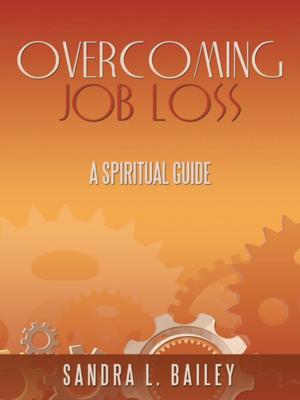| Author: | David Zacconi | ISBN: | 9781524604387 |
| Publisher: | AuthorHouse | Publication: | June 25, 2016 |
| Imprint: | AuthorHouse | Language: | English |
| Author: | David Zacconi |
| ISBN: | 9781524604387 |
| Publisher: | AuthorHouse |
| Publication: | June 25, 2016 |
| Imprint: | AuthorHouse |
| Language: | English |
I wrote this manuscript while still a patient in a psych ward at Sir Charles Gairdner Hospital. During this time, I was fortunate enough for my psychiatrist, clinical psychologist, and a few clinical psychology nurses to have read my unfinished manuscript. They all wanted more, and their praise was what I needed to complete the manuscript. The hospital staff was astounded at the insight and accuracy of how most patients suffering from major depressive disorder and anxiety felt and explained to them the same way I had written each account and episode. They also told me that there wasnt anything like this that they were able to find apart from what was in their own notes. I think that if I had something like this to read before my admission to hospital, it would have prepared me for what was not only happening at the time but also for what was about to happen next, and I wouldnt have felt so alone and scared. I believe that a large piece of the market would be for people that are suffering from depression and anxiety but havent spoken up or are still in denial. There has been much in the news of late about depression and the fly-in, fly-out workers and their struggle with suicide. What prompted me to write on this subject was an article I read on a LinkedIn site about depression in the workplace. I read the article and was blown away by the comments at the end by both employers and employees. These comments ranged from No way could I approach my boss for fear of being fired to the bosses themselves saying there is no way they would want their employees knowing about their struggles with the disease for fear of ridicule. It is an ever-increasing disease, and in America alone, the stats indicate 70 percent of the workforce have encountered depression and anxiety in one form or another, with the stats saying the increase over the next two years at this rate will be an alarming 95 percent of people in the workforce will either be going through their own sickness or know someone who is. The stigma attached to these diseases is astounding and must be addressed immediately as suicides and sickness is on the rise. The problem is that people who suffer at the hands of Depression and Anxiety rarely speak out. It is a silent killer. I believe very strongly that my manuscript will help not only those who suffer the disease but those who know someone who suffers or think they may suffer from Depression and or Anxiety but dont know what to do. The biggest obstacle I find is that people dont see an injury.
I wrote this manuscript while still a patient in a psych ward at Sir Charles Gairdner Hospital. During this time, I was fortunate enough for my psychiatrist, clinical psychologist, and a few clinical psychology nurses to have read my unfinished manuscript. They all wanted more, and their praise was what I needed to complete the manuscript. The hospital staff was astounded at the insight and accuracy of how most patients suffering from major depressive disorder and anxiety felt and explained to them the same way I had written each account and episode. They also told me that there wasnt anything like this that they were able to find apart from what was in their own notes. I think that if I had something like this to read before my admission to hospital, it would have prepared me for what was not only happening at the time but also for what was about to happen next, and I wouldnt have felt so alone and scared. I believe that a large piece of the market would be for people that are suffering from depression and anxiety but havent spoken up or are still in denial. There has been much in the news of late about depression and the fly-in, fly-out workers and their struggle with suicide. What prompted me to write on this subject was an article I read on a LinkedIn site about depression in the workplace. I read the article and was blown away by the comments at the end by both employers and employees. These comments ranged from No way could I approach my boss for fear of being fired to the bosses themselves saying there is no way they would want their employees knowing about their struggles with the disease for fear of ridicule. It is an ever-increasing disease, and in America alone, the stats indicate 70 percent of the workforce have encountered depression and anxiety in one form or another, with the stats saying the increase over the next two years at this rate will be an alarming 95 percent of people in the workforce will either be going through their own sickness or know someone who is. The stigma attached to these diseases is astounding and must be addressed immediately as suicides and sickness is on the rise. The problem is that people who suffer at the hands of Depression and Anxiety rarely speak out. It is a silent killer. I believe very strongly that my manuscript will help not only those who suffer the disease but those who know someone who suffers or think they may suffer from Depression and or Anxiety but dont know what to do. The biggest obstacle I find is that people dont see an injury.















